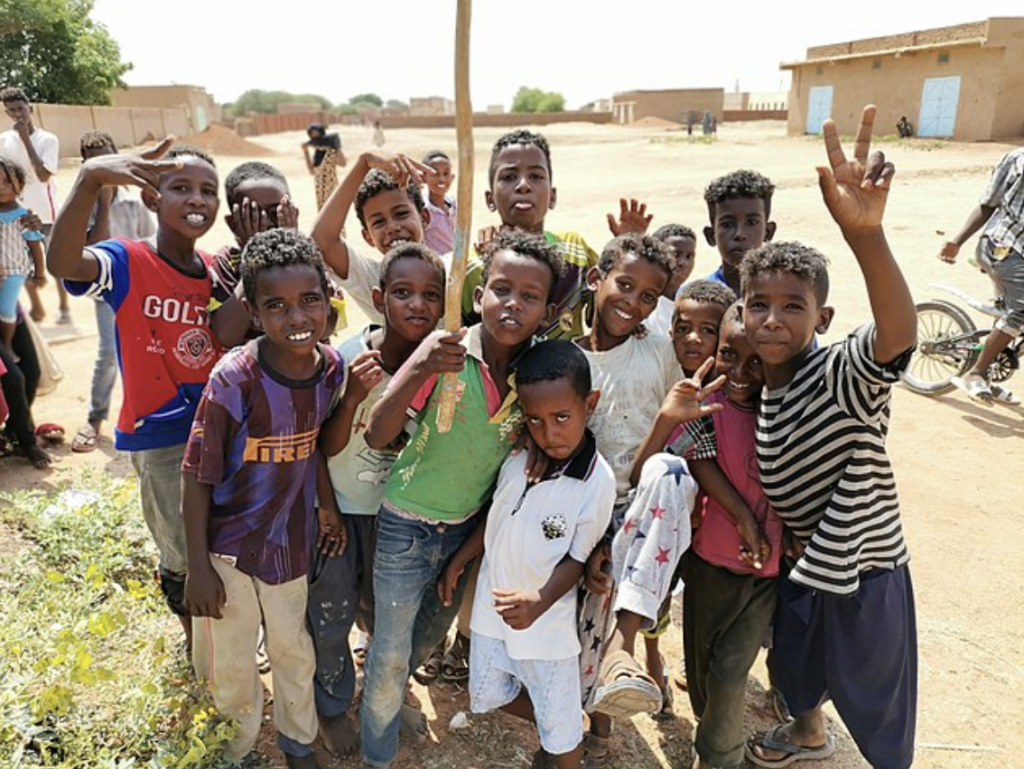Sudan's Humanitarian Crisis

By Mehdi El Merini / Arab America contributing writer
Sudan is currently experiencing one of the most severe humanitarian crises in its history. With a legacy of conflict, economic instability, and environmental challenges, the country is in urgent need of assistance. The crisis has affected nearly 13.4 million people, including 7.3 million children, according to the United Nations Office for the Coordination of Humanitarian Affairs (OCHA). The situation is further complicated by the ongoing violence in Darfur, which remains a focal point of instability and suffering.
Historical Context and the Darfur Conflict
Sudan’s recent history is marked by prolonged and devastating conflicts. The First and Second Sudanese Civil Wars, spanning from 1955 to 1972 and 1983 to 2005, respectively, left deep scars on the nation. The root causes included ethnic, religious, and political divisions that led to significant loss of life and displacement. The 2011 secession of South Sudan, following decades of conflict, did little to resolve these underlying tensions.
The Darfur conflict, which erupted in 2003, is a significant component of Sudan’s humanitarian crisis. This resulted in widespread atrocities, including genocide, as documented by international observers. The conflict led to the displacement of over 2.7 million people, many of whom remain in camps with limited access to basic services. Recent clashes in Darfur have only exacerbated the situation, highlighting the ongoing instability in the region.
Current Humanitarian Situation
As of 2024, Sudan faces a dire humanitarian situation characterized by widespread displacement, food insecurity, and a lack of access to essential services. The ongoing violence, particularly in Darfur, the Blue Nile, and South Kordofan, continues to displace people, compounding the crisis.
Displacement and Refugees
Sudan is home to a large number of internally displaced persons (IDPs) and refugees. The country hosts refugees from neighboring South Sudan, Ethiopia, and Eritrea, placing additional strain on already limited resources. The conflict in Darfur alone has forced millions from their homes, with many living in camps under harsh conditions. These camps often lack adequate sanitation, healthcare, and security, making them vulnerable to disease outbreaks and further violence.
Food Insecurity and Malnutrition
The food security situation in Sudan is critical. The World Food Programme (WFP) reports that nearly one-third of the population faces food insecurity. The combination of conflict, economic downturn, and climate change has severely disrupted agricultural production. As a result, many families cannot afford basic food items, leading to alarming levels of malnutrition, particularly among children. In some areas, malnutrition rates have reached emergency levels, posing a significant threat to the nation’s future.

Economic Challenges
Sudan’s economy has been in turmoil for years. The loss of oil revenue following South Sudan’s independence, coupled with international sanctions and internal mismanagement, has led to severe economic hardship. The country experiences hyperinflation, with the Sudanese pound losing significant value, making it difficult for people to purchase basic goods. Widespread poverty exacerbates the humanitarian crisis, as many Sudanese struggle to meet their daily needs.
Healthcare and Education
Sudan’s healthcare system is under severe strain. Hospitals and clinics are often underfunded and understaffed, lacking essential medicines and equipment. The COVID-19 pandemic further exposed these weaknesses, overwhelming an already fragile system. Many people, especially in conflict-affected areas, have limited access to healthcare, leading to preventable deaths and suffering.
The education sector is similarly challenged. Ongoing conflicts have damaged or destroyed many schools, disrupting the education of thousands of children. The shortage of qualified teachers and lack of educational materials further complicate the situation. The disruption of education not only affects children’s immediate well-being but also has long-term implications for the country’s development and stability.
International Response and Challenges to the Crisis
The international community has been actively involved in addressing Sudan’s humanitarian crisis. The United Nations, along with various international non-governmental organizations (NGOs), provides critical assistance in areas such as food security, healthcare, and education. However, the scale of the crisis often outstrips the available resources, making it challenging to meet all the needs.
One of the major obstacles to effective aid delivery is the security situation. Ongoing violence and the presence of armed groups pose significant risks to aid workers, hindering the delivery of assistance. Bureaucratic hurdles and restrictions imposed by the government also delay and complicate aid efforts, making it difficult to reach those most in need.

The Path Forward
Addressing Sudan’s humanitarian crisis requires a comprehensive and sustained approach. Achieving lasting peace and stability is paramount. This includes inclusive dialogue among all political and ethnic groups, along with accountability for past human rights abuses. The international community can play a crucial role in supporting peacebuilding initiatives and providing technical and financial assistance for reconciliation processes.
Economic recovery is another critical component. Reforms aimed at stabilizing the economy, combating corruption, and promoting sustainable development are essential. The lifting of international sanctions and the normalization of Sudan’s relations with the global community could provide a much-needed boost to the economy.
In the humanitarian sector, continued and increased support is vital. This includes not only emergency relief but also long-term development programs that build resilience and self-sufficiency among the population. Investment in education and healthcare infrastructure is particularly important to ensure a better future for Sudan’s children.
Sudan’s humanitarian crisis is a complex and multifaceted issue that demands urgent attention and action. With millions of people in need of assistance, the situation in Sudan requires a comprehensive and sustained response from the international community. The challenges are immense, but with concerted effort and commitment, there is hope for a better future for the Sudanese people.
Check out our Blog here!









